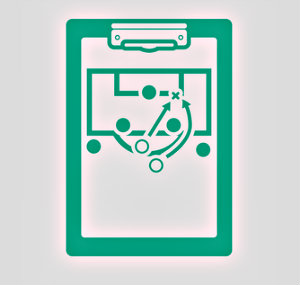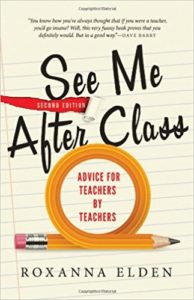Quiz: What’s Your Most Natural Teaching Style?
Roxanna Elden’s Disillusionment Power Pack – a month’s worth of friendly email insights – has helped hundreds of novice teachers get more centered in their first year of teaching. She shares a sample of that free advice here!

By Roxanna Elden
Teachers often learn the hard way that weaknesses in our personal lives can carry over to our teaching styles. The good news is that the skills and strengths that we had before we started waking up at 5 a.m. are still available to us, also. Consider your answers to the questions below as you try to channel your personal strengths into classroom success.
What are your interests outside of school?
Being well versed in your subject and in instructional strategies is important, but it’s also important to be well rounded. The activities you do in your free time offer clues to the types of above-and-beyond moves that will recharge you instead of draining your energy.
As a fourth grade teacher, I was able to motivate students by promising a short caricature lesson at the end of the day. This was a skill I had learned during a summer job in college, found relaxing, and was eager to share with my students. Other teachers have sparked enthusiasm by playing guitar in class or sponsoring clubs based on interests they have in common with students, from weaving to robotics.
What are your “disinterests?”
Extra effort can pay off, but beware of signing on to spend personal time involved in activities you hate.
As an un-athletic, uncoordinated person with negative memories of childhood sports, I realized too late it was a bad idea to start a middle grades soccer team. It turned out that coaching team sports involved standing in the sun for hours. (Who knew?)
 It also required learning strategy, scheduling games, ordering uniforms, getting insurance, and trying to get the kids to stop arguing over whether a play was fair – which was surprisingly hard to do when everything you know about a sport comes from a For Dummies guidebook.
It also required learning strategy, scheduling games, ordering uniforms, getting insurance, and trying to get the kids to stop arguing over whether a play was fair – which was surprisingly hard to do when everything you know about a sport comes from a For Dummies guidebook.
Extra-curricular volunteer activities should never feel like more of a chore than your actual job requirements.
What personal challenges have you overcome?
No need to rewrite your college admissions essay here. Just remember the hurdles you cleared growing up make you a role model for students charting their own courses. These can include huge obstacles like health problems and poverty, but also kid-level issues like not making the cheerleading squad.
A teacher who overcame shyness may have a few extra insights to offer kids with stage fright before a class presentation. Teachers who struggled in a certain subject area may have more patience for slow starters, or even step-by-step tricks that the naturals never had to learn. Plus, when teaching becomes a challenge in itself, it helps to remember you have beaten the odds before.
What made you think you would be a good teacher in the first place?
Try to think past the basic “I love kids” answer. After all, there are days as a new teacher when you’re not sure you love kids as much as you thought you did. But also, the traits that make an effective teacher sometimes contradict each other: ambition and patience, humor and sensitivity, creativity and structure. There is no recipe for a perfect teacher (write that down), so work with the ingredients you have.
If you are creative, work an artistic spin into your lessons and classroom setup. If you are computer savvy, set up a class website. Be realistic about your strengths, though. It is not in anyone’s best interest to start a half-hearted art project or a website that sits neglected in cyberspace collecting cyber-dust and guilt.
Adapt your classroom routines to let you be the kind of teacher you hoped to be, and you may remember that you do love kids after all. At least most of the time.
See all of Roxanna’s tips for new teachers
__________________
 Roxanna Elden taught for 11 years in various subjects and grade levels. She attained National Board Certification in Secondary Language Arts and wrote See Me After Class: Advice for Teachers by Teachers, a funny, honest, practical guide with insights from experienced teachers around the country.
Roxanna Elden taught for 11 years in various subjects and grade levels. She attained National Board Certification in Secondary Language Arts and wrote See Me After Class: Advice for Teachers by Teachers, a funny, honest, practical guide with insights from experienced teachers around the country.
She is also the creator of the “Disillusionment Power Pack,” a free, one-month series of emails for new teachers in which she shares journal pages, stories, and insights she would have shared with the first-year-teacher version of herself. Emails begin with sign up and arrive every few days for one month. Learn more about Roxanna’s outlook on teaching in this interview with Larry Ferlazzo.



































Roxanna, I enjoyed this article very much. There are so many advantages to sharing more of ourselves with students. Something I did late in my English teaching career was write with my students. They could see all writers struggle and sometimes it’s the 3rd or 4th draft that’s really good, not the first.